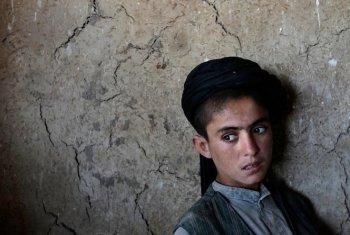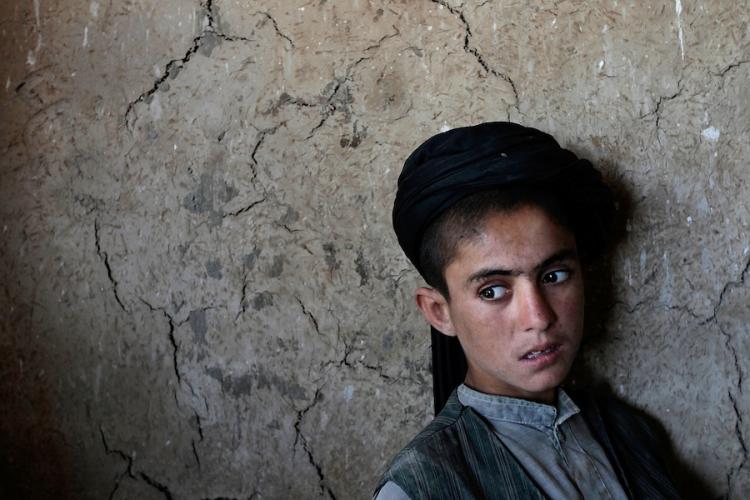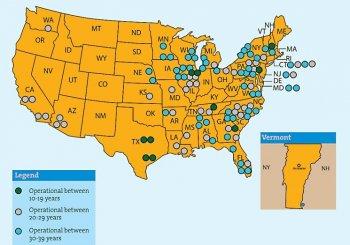Caught in-between the Taliban’s brutal force and the Pakistani government’s violent but inadequate response, the 3 million Pashtun people of northwestern Pakistan are caught in a serious, but seldom mentioned, human rights crisis.
Northwestern Pakistan’s Federally Administered Tribal Areas (FATA) and North West Frontier Province (NWFP) are nestled in the heart of both an international and domestic conflict.
A report released Wednesday by Amnesty International, based on 300 interviews with civilians, government officials, teachers, aid workers, and others, sheds light on the northwest Pakistani situation.
The Pakistani government has historically marginalized the people in the FATA and NWFP regions, who are mostly of the Pashtun ethnic group.
According to the AI report, the Pashtun people suffer from some of the lowest living standards in Asia. With an overall adult literacy rate of 17 percent, and as low as 7 percent for women and girls over 10 years old, the region is developmentally far behind the rest of Pakistan, which has an overall literacy rate of 43 percent.
Since 1901, the region has been governed under the colonial-era Frontier Crime Regulation (FCR)—a law that has been criticized for perpetuating sexual discrimination and violating both international human rights laws and the Pakistani Constitution.
Caught in the Middle
The Taliban was first pushed into the northwest region of Pakistan as they fled the U.S.-led invasion of Afghanistan in 2001.
When the Pakistani Taliban started to interfere in military operations in Afghanistan, the Pakistani government took steps to suppress them, often at the expense of the human rights of the local population living in the FATA and the NWFP regions.
In 2009 alone, AI’s conservative estimate is that 1,300 people were killed in confrontations between the Pakistani military and the Taliban. Other sources, such as the Pakistan-based Institute for Peace Studies, suspects that the figure is much higher, upward of 11,000 people.
The Taliban’s presence has also lead to the destruction of hundreds of schools in FATA and NWFP regions.
A 25-year-old man in the frontier region of Darra, Adam Khel informed AI of an incident regarding the Taliban’s systematic bombing of schools.
“First they [the Taliban] warned owners of private schools to end coeducation. Then they told the government’s girls’ schools to close. When they refused, the Taliban bombed several of them and the rest of the schools were closed for fear of bombing. At the same time, parents also stopped sending their children to schools for fear of the Taliban,” said the man, who wished to remain anonymous.
The AI report also accuses the Pakistani government of misconduct in handling the affairs of the region with dire consequences. It points in particular at the Battle of Bajaur, August 2008, in which the Pakistani Ministry of Interior had announced that the government would begin a month-long ceasefire for the holy month of Ramadan.
When some of the 1 million people who had fled the region due to the conflict heard the news, they returned home. However, what awaited them was a false promise, as the ceasefire did not hold.
“I lost my sense when I reached the door of my house and saw and heard the crying of my close neighbors and relatives—as if hell fell on me. When I saw people putting the dead bodies of my children, parents, and other relatives in bed I couldn’t bear it anymore and fell on the ground. … The government had announced that there would be no firing during Ramadan and this was the reason we came back to our houses,” said a man interviewed by AI.
Northwestern Pakistan’s Federally Administered Tribal Areas (FATA) and North West Frontier Province (NWFP) are nestled in the heart of both an international and domestic conflict.
A report released Wednesday by Amnesty International, based on 300 interviews with civilians, government officials, teachers, aid workers, and others, sheds light on the northwest Pakistani situation.
The Pakistani government has historically marginalized the people in the FATA and NWFP regions, who are mostly of the Pashtun ethnic group.
According to the AI report, the Pashtun people suffer from some of the lowest living standards in Asia. With an overall adult literacy rate of 17 percent, and as low as 7 percent for women and girls over 10 years old, the region is developmentally far behind the rest of Pakistan, which has an overall literacy rate of 43 percent.
Since 1901, the region has been governed under the colonial-era Frontier Crime Regulation (FCR)—a law that has been criticized for perpetuating sexual discrimination and violating both international human rights laws and the Pakistani Constitution.
Caught in the Middle
The Taliban was first pushed into the northwest region of Pakistan as they fled the U.S.-led invasion of Afghanistan in 2001.
When the Pakistani Taliban started to interfere in military operations in Afghanistan, the Pakistani government took steps to suppress them, often at the expense of the human rights of the local population living in the FATA and the NWFP regions.
In 2009 alone, AI’s conservative estimate is that 1,300 people were killed in confrontations between the Pakistani military and the Taliban. Other sources, such as the Pakistan-based Institute for Peace Studies, suspects that the figure is much higher, upward of 11,000 people.
The Taliban’s presence has also lead to the destruction of hundreds of schools in FATA and NWFP regions.
A 25-year-old man in the frontier region of Darra, Adam Khel informed AI of an incident regarding the Taliban’s systematic bombing of schools.
“First they [the Taliban] warned owners of private schools to end coeducation. Then they told the government’s girls’ schools to close. When they refused, the Taliban bombed several of them and the rest of the schools were closed for fear of bombing. At the same time, parents also stopped sending their children to schools for fear of the Taliban,” said the man, who wished to remain anonymous.
The AI report also accuses the Pakistani government of misconduct in handling the affairs of the region with dire consequences. It points in particular at the Battle of Bajaur, August 2008, in which the Pakistani Ministry of Interior had announced that the government would begin a month-long ceasefire for the holy month of Ramadan.
When some of the 1 million people who had fled the region due to the conflict heard the news, they returned home. However, what awaited them was a false promise, as the ceasefire did not hold.
“I lost my sense when I reached the door of my house and saw and heard the crying of my close neighbors and relatives—as if hell fell on me. When I saw people putting the dead bodies of my children, parents, and other relatives in bed I couldn’t bear it anymore and fell on the ground. … The government had announced that there would be no firing during Ramadan and this was the reason we came back to our houses,” said a man interviewed by AI.




